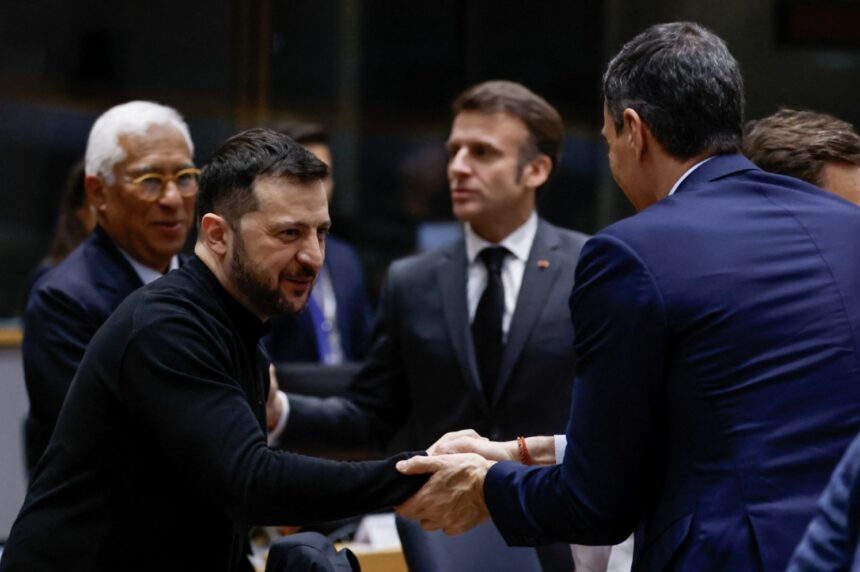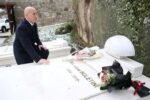Ukrainian opposition leaders have rejected the idea of holding elections while the country is at war. This comes as President Zelensky joins EU leaders for an urgent summit today (Thursday) following calls to raise a war fund of €800 billion to finance Ukraine’s defense against Russia’s full-scale invasion, according to international media reports.
Former Ukrainian President Petro Poroshenko stated that his team is working with “American partners” to maintain support for Ukraine, but added that he opposes elections during wartime, as reported by the online newspaper Reporteri.net. He emphasized that elections should only take place once peace is achieved, with voting to occur no later than 180 days after the end of the war.
Yuliia Tymoshenko agreed, adding that her team is “talking to all allies who can help secure a just peace as soon as possible.”
Earlier, French President Macron boldly stated that his country might use nuclear weapons to protect Europe from Russia.
As the emergency summit takes place, British Defense Minister John Healey will meet with U.S. Secretary of Defense Pete Hegseth in Washington for tense talks over a peace plan for Ukraine.
EU countries will discuss how to quickly increase their military budgets following U.S. President Trump’s shocking move to freeze military aid to Ukraine and cancel vital intelligence exchanges.
European Commission President Ursula von der Leyen said leaders are meeting to “rearm Europe” and help protect Zelensky’s nation. The proposal is a massive defense package, which von der Leyen believes could raise an impressive €800 billion for defense spending.
Von der Leyen outlined five measures in a letter to EU leaders ahead of the summit. These include a “new instrument” to raise €150 billion from financial markets, which would be loaned to member states wishing to invest in military capabilities.
The new instrument will be established under Article 122 of the EU Treaty, allowing the bloc to provide financial aid to a member state facing “serious difficulties caused by natural disasters or extraordinary circumstances beyond its control,” without needing approval from the European Parliament.
Upon arriving at the emergency summit in Brussels, Zelensky thanked European leaders for their continued support.
“Throughout this period, last week, you stood with us. All Ukrainians deeply appreciate it. We are very grateful that we are not alone. These are not just words, we feel it. You’ve sent a strong signal to the Ukrainian people, to Ukrainian fighters, to civilians, to all our families. It’s good that we are not alone, we feel it, we know it,” he said.
Since taking office, Trump has dramatically shifted in favor of Russia, withdrawing U.S. military aid to Ukraine and now halting intelligence sharing with the besieged country.
European nations have been working to reduce dependency on the U.S., with Keir Starmer announcing increased defense spending in the United Kingdom.
Last night, French President Macron insisted that Europe’s future should not be “decided in Moscow or Washington” and stated that the bloc must take responsibility itself.
He boldly announced that France could prepare its own nuclear deterrent to protect the continent under a shield against Russian aggression. France is the only EU country with nuclear capabilities.
However, he also made it clear that the decision would remain solely in the hands of the French president.
Trust in the U.S. to defend NATO and EU countries in case of attack is wavering, as America has repeatedly undermined the Western alliance.
Macron said, “I want to believe that the U.S. will stand by us, but we must also be ready if the U.S. is no longer with us.”
He emphasized that regardless of what happens in Ukraine, Russia should be recognized as a permanent threat – and Europe must act now to “protect” and “deter” possible attacks, which means “more weapons and more equipment.”
As he arrived at today’s summit, Macron reiterated his commitment to opening the debate on expanding France’s nuclear umbrella.
However, he also emphasized that the decision to use nuclear weapons would remain with the French presidency.







